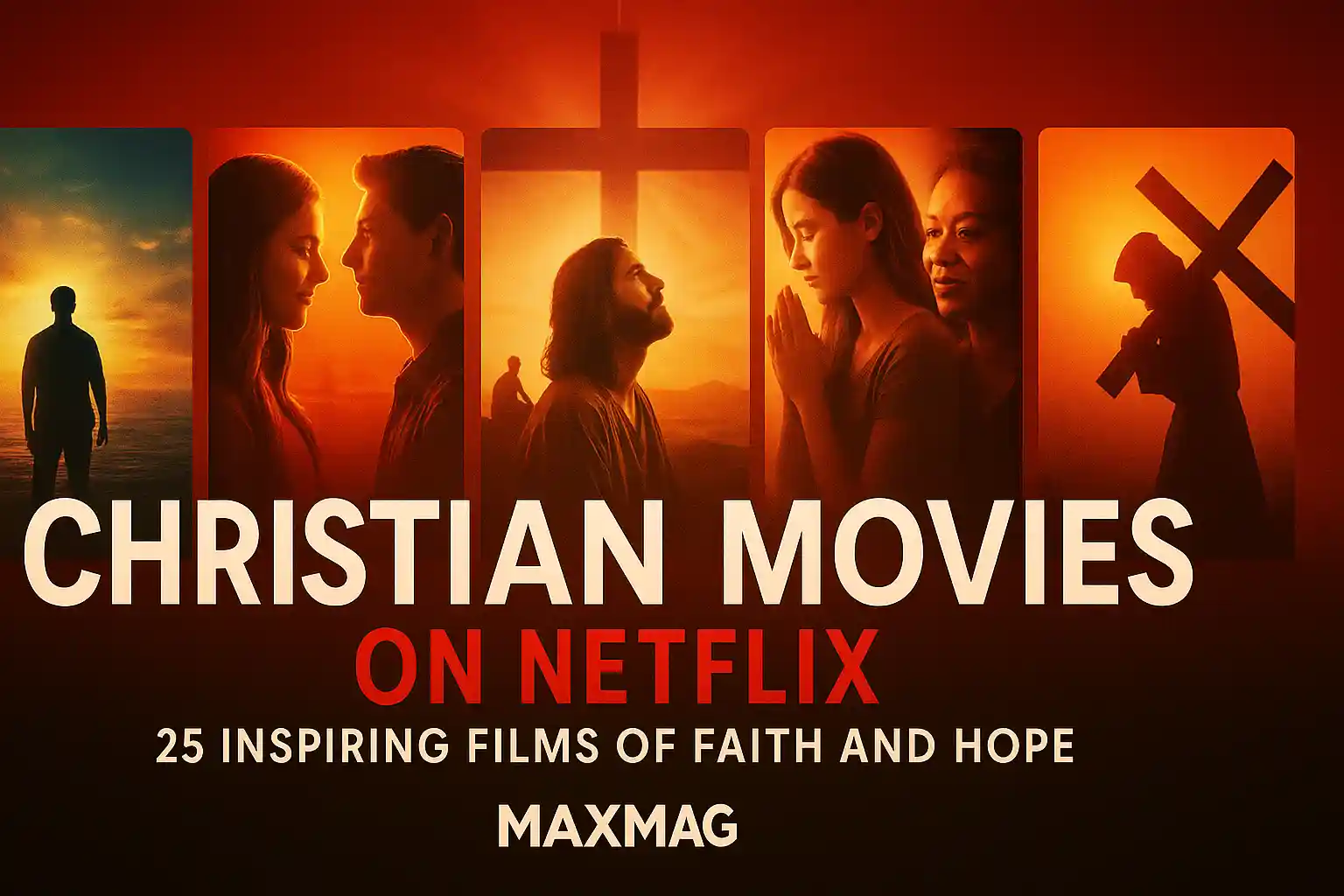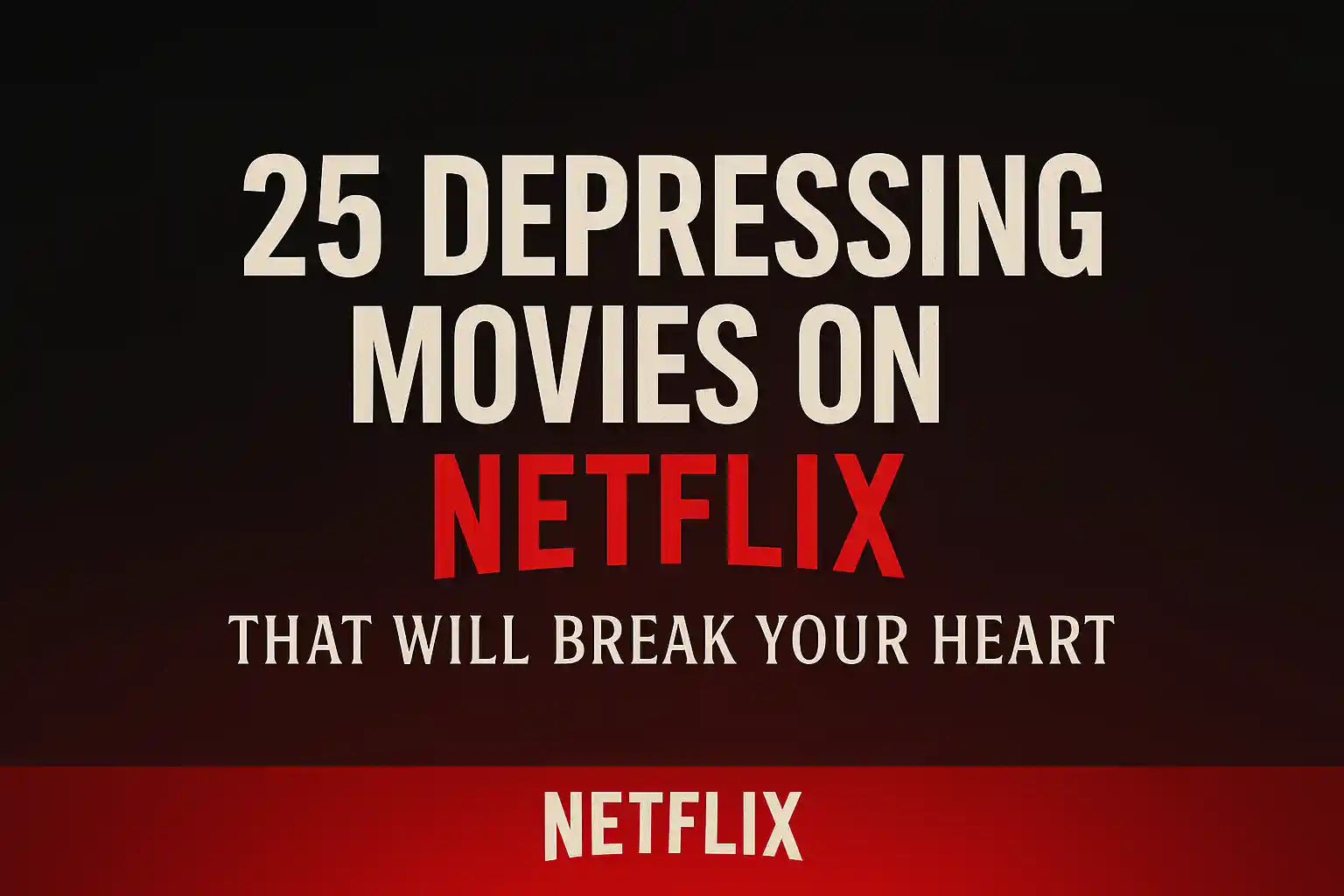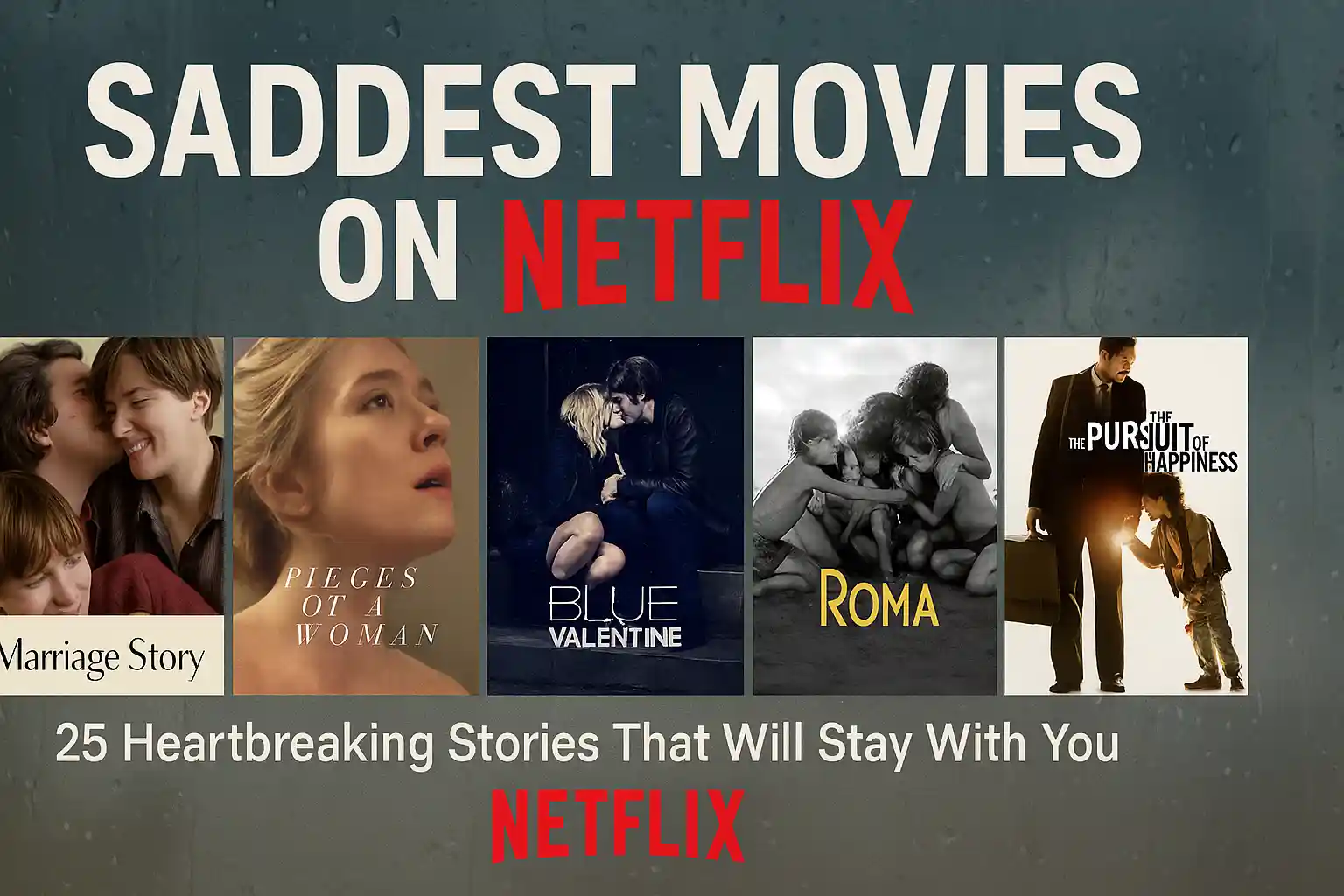
Netflix has become a streaming home for every genre, but some of its most indelible films are the ones that quietly break your heart. These saddest movies on Netflix delve into love, loss, grief, and the stubborn resilience that follows catastrophe. They aren’t simply “tearjerkers”—they’re carefully crafted stories that mirror our most vulnerable moments and invite catharsis. From intimate chamber dramas to sweeping historical tragedies, each title on this list offers a different facet of sorrow and healing. You’ll find romances cut short, families tested by impossible choices, and characters who learn to live with the unfixable. Together, they form a map of human tenderness under pressure. If you’re ready to feel deeply, grab tissues, dim the lights, and let these films do what great cinema does best: help you hurt—and then help you mend.
25 Saddest Movies on Netflix
25. Pieces of a Woman (2020)
- Runtime: 126 min
- Starring: Vanessa Kirby, Shia LaBeouf, Ellen Burstyn
- Director: Kornél Mundruczó
- Genre: Drama
- IMDb Rating: 7.0
Pieces of a Woman opens with an unblinking, devastating home-birth sequence that reorients an entire life in minutes. Vanessa Kirby’s Martha grieves in halting breaths, silences, and sudden flares of rage, the kind of performance that feels overheard rather than acted. Around her, a bewildered partner and a controlling mother struggle to translate love into something useful. Legal fallout promises closure but keeps reopening wounds, forcing Martha to navigate public scrutiny atop private pain. The film’s patience is its power; it stays with the days after, when casseroles cool and grief calcifies. Cinematography favors long takes and negative space, letting absence become a character. A handful of fragile mercies keep the film from cruelty. It doesn’t resolve so much as soften, honoring how loss is carried rather than cured. Few titles render sorrow with such terrifying clarity.
24. Marriage Story (2019)
- Runtime: 137 min
- Starring: Scarlett Johansson, Adam Driver, Laura Dern
- Director: Noah Baumbach
- Genre: Drama
- IMDb Rating: 7.9
Marriage Story hurts because no one is a villain and love still isn’t enough. Johansson and Driver play artists whose tenderness curdles into logistics, lawyers, and lonely apartments. The film captures petty kindnesses and tiny cruelties with forensic precision, making every compromise feel expensive. A musical interlude reveals the ache of what once was; a courtroom scene reveals what divorce can turn love into. Laura Dern’s attorney is both savior and scalpel, smiling while she cuts. The child at the center is never a pawn yet always the prize, a reminder that separation has a blast radius. Baumbach writes dialogue that lands like truth you didn’t want to hear. By the time the fight explodes, it’s less spectacle than inevitability. The final grace note—a shoelace tied—says everything about endings that keep on living.
23. The Boy in the Striped Pajamas (2008)
- Runtime: 94 min
- Starring: Asa Butterfield, Jack Scanlon, Vera Farmiga
- Director: Mark Herman
- Genre: War/Drama
- IMDb Rating: 7.7
Seen through a child’s eyes, horror becomes incomprehension, and that is this film’s quiet terror. Bruno, the son of a Nazi officer, befriends Shmuel across a fence his innocence can’t decode. Their shared snacks and questions play like small rebellions against adult lies. Vera Farmiga’s mother character fractures under the truth leaking into her home, a portrait of complicity awakening too late. The palette is muted, as if history itself were drained of color. Moments of play are allowed, only to be recontextualized by the film’s shattering end. It’s not misery porn; it’s a moral fable about how ignorance can be fatal. The boys’ symmetry—two children, two worlds—makes the final image unbearable. You will not forget how quietly the film walks you to the edge. You will not forget how far the drop is.
22. All the Bright Places (2020)
- Runtime: 107 min
- Starring: Elle Fanning, Justice Smith
- Director: Brett Haley
- Genre: Romance/Drama
- IMDb Rating: 6.5
Grief meets undiagnosed storm weather in this teen romance about Violet and Finch. She is sealed inside loss; he is a lighthouse flickering against his own dark. Their school project becomes a map of small midwestern miracles, each stop a stitch. The film treats young love with tenderness, but refuses to romanticize mental illness. Elle Fanning plays Violet as someone relearning gravity, while Justice Smith gives Finch an electric unpredictability that feels true. Sunlit scenes hold shadows if you look long enough. The script honors how help can be offered, refused, and still be help. Its ending is both expected and crushing, a reminder that recovery isn’t linear or guaranteed. What remains is a charge to notice the world’s little bright places—and to be one when you can.
21. A Monster Calls (2016)
- Runtime: 108 min
- Starring: Lewis MacDougall, Sigourney Weaver, Felicity Jones
- Director: J.A. Bayona
- Genre: Fantasy/Drama
- IMDb Rating: 7.5
Grief demands a story we can survive, so the story grows teeth and bark. A yew tree monster arrives at 12:07 to bargain with a boy who won’t speak his worst truth. The watercolor interludes bloom like living parables, insisting that people contain contradictions. Felicity Jones plays a mother whose warmth makes acceptance feel like betrayal. Sigourney Weaver’s stern grandmother hides fracture lines under lacquer. The film’s great kindness is allowing anger its place at the table. As tales turn on themselves, the boy’s secret steps into light, awful and liberating. Bayona frames bedrooms and corridors as emotional landscapes, wide as oceans when crossed alone. When the monster says what it is, the film says what grief takes—and what it leaves to hold.
20. Irreplaceable You (2018)
- Runtime: 96 min
- Starring: Gugu Mbatha-Raw, Michiel Huisman
- Director: Stephanie Laing
- Genre: Romance/Drama
- IMDb Rating: 6.4
Faced with terminal illness, Abbie tries to pre-grieve by planning her fiancé’s future without her. It’s a misguided kindness, and that’s why it aches. Gugu Mbatha-Raw gives Abbie a quicksilver wit that keeps despair from calcifying. Michiel Huisman’s Sam is the portrait of a good man outpaced by fate. The film uses humor as a pressure valve, letting the unbearable be briefly breathable. Hospice group scenes offer grace notes without sermonizing. The question underneath every errand is simple and impossible: how do you love someone toward the door? By the end, the planning stops and presence begins. It’s a small pivot that feels like a miracle. The title becomes an epitaph for ordinary, irreplaceable days.
19. Beasts of No Nation (2015)
- Runtime: 137 min
- Starring: Abraham Attah, Idris Elba
- Director: Cary Joji Fukunaga
- Genre: War/Drama
- IMDb Rating: 7.7
Agu’s childhood is severed mid-sentence, and the rest of the film finishes it in a language of war. Abraham Attah’s open face becomes a mask you watch harden. Idris Elba’s Commandant is charisma weaponized, father figure and predator in one. Fukunaga shoots jungles as both cathedral and cage, beauty indifferent to brutality. Rituals of belonging replace family; chants replace lullabies. Violence is filmed with restraint that somehow makes it heavier. The rare quiet moments—water, sky, a song—are almost unbearable in their mercy. When dissociation cracks, the boy inside flickers like a pilot light. The final scenes suggest that survival and salvation are not synonyms. What remains is a child who deserves both.
18. Roma (2018)
- Runtime: 135 min
- Starring: Yalitza Aparicio, Marina de Tavira
- Director: Alfonso Cuarón
- Genre: Drama
- IMDb Rating: 7.7
Roma turns memory into architecture, corridors into rivers you wade through. Yalitza Aparicio’s Cleo moves with quiet devotion through a household coming apart. Cuarón’s black-and-white images are luminous and unsentimental, catching the choreography of care work most films crop out. Political unrest rumbles like distant thunder that keeps arriving. A beach sequence stages salvation and surrender in one breath, the camera refusing to blink. The film never begs; it observes, and observation becomes reverence. Cleo’s heartbreak is private yet universal, the cost of being everyone’s gravity. Children cling, adults flail, and she steadies storms with a soft voice. In the end, the house resets, the heart does not. The sky, impossibly wide, holds what people cannot.
17. Blue Valentine (2010)
- Runtime: 112 min
- Starring: Ryan Gosling, Michelle Williams
- Director: Derek Cianfrance
- Genre: Romance/Drama
- IMDb Rating: 7.4
Two timelines—one glittering, one ash—braid into a single love story that won’t hold. Gosling and Williams are ferociously alive as Dean and Cindy, their chemistry undeniable even as their tenderness erodes. The film catalogs tiny defeats: a look not returned, a joke that lands wrong, a promise left unwatered. Motels and kitchens become arenas where hope throws its last punches. Cianfrance keeps the camera close, where breath catches and eyes betray. The needle drops are merciless, scoring nostalgia against the present tense. No infidelity twist, no neat culprit—just incompatibility becoming injury. Watching the early courtship is like time travel with foreknowledge. When the door finally closes, it sounds like a final chord you still feel humming.
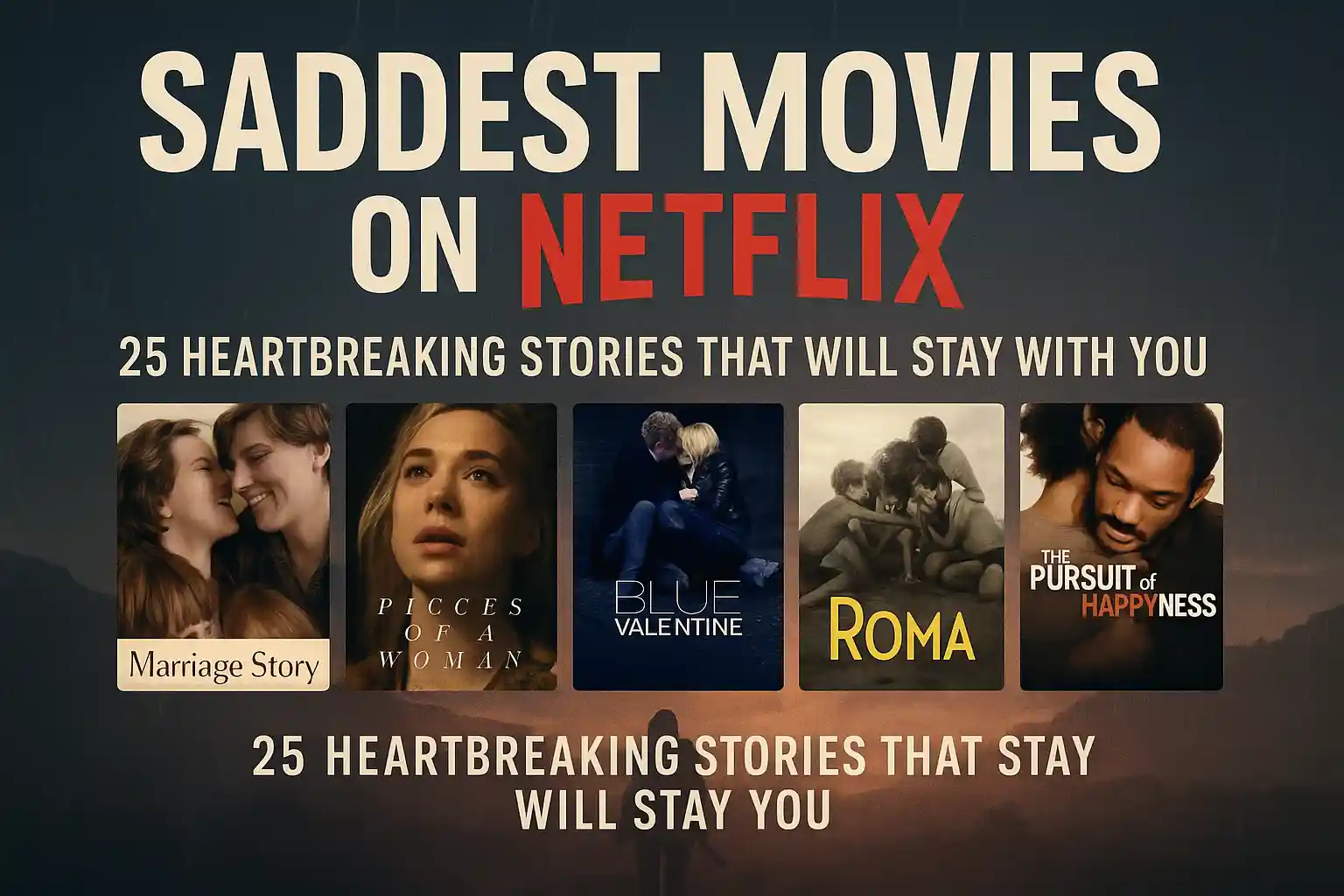
16. Schindler’s List (1993)
- Runtime: 195 min
- Starring: Liam Neeson, Ralph Fiennes, Ben Kingsley
- Director: Steven Spielberg
- Genre: War/Drama
- IMDb Rating: 9.0
Spielberg’s masterpiece renders atrocity with a gravity that resists both spectacle and despair. Oskar Schindler begins as a bon vivant opportunist and is transformed by proximity to annihilation. Liam Neeson charts that moral migration with aching restraint. Ralph Fiennes’s Amon Göth is the banality of evil made flesh, horrifying for how casual it looks. Black-and-white cinematography scrapes glamour off the image until only witness remains. The girl in the red coat cuts through history like a flare. Lists become liturgy, names as fragile as paper and as heavy as lives. In the end, Schindler weeps over what he didn’t do, and we weep because we recognize that math. The coda insists memory be a verb. It still does.
15. The Fault in Our Stars (2014)
- Runtime: 126 min
- Starring: Shailene Woodley, Ansel Elgort
- Director: Josh Boone
- Genre: Romance/Drama
- IMDb Rating: 7.7
Teen romance meets terminal prognosis, and somehow the film finds wit without disrespect. Hazel’s oxygen cannula is ever-present but never her whole self. Gus is charisma and gallows humor, refusing to be reduced to a diagnosis. Amsterdam glows like a brief permission slip from reality, only to hand them back their limits. The eulogies come early, delivered to the living because love can’t wait. Shailene Woodley threads sarcasm and softness with startling control. The script lets big feelings sit in small spaces—park benches, quiet bedrooms, a museum stair. It isn’t brave because it’s sad; it’s brave because it’s tender on purpose. What remains after losses stack is gratitude shaped like ache. You’ll carry it for a while.
14. The Pursuit of Happyness (2006)
- Runtime: 117 min
- Starring: Will Smith, Jaden Smith
- Director: Gabriele Muccino
- Genre: Drama
- IMDb Rating: 8.0
Based on Chris Gardner’s true story, this is poverty rendered without pity and ambition redeemed without myth. Will Smith’s performance carries a father’s terror and tenderness in equal measure. The shelter line, the bathroom floor, the interview shirt—artifacts of a war for stability. Jaden Smith’s presence raises the stakes; failure here isn’t abstract. The internship is both ladder and mirage, asking for more than a man should have to give. Muccino shoots San Francisco as beautiful and indifferent. The happy ending, when it comes, is earned breath by breath. Tears arrive not for triumph but for relief. It’s one of the saddest movies on Netflix because it understands the price of hope.
13. My Girl (1991)
- Runtime: 102 min
- Starring: Anna Chlumsky, Macaulay Culkin, Dan Aykroyd
- Director: Howard Zieff
- Genre: Family/Drama
- IMDb Rating: 6.9
First crush, first loss, first language for feelings that don’t yet fit. Vada is precocious and porous, collecting grief like fireflies in a jar. Thomas J. is sweetness unguarded, which is why his absence rings so loud. Summer days hum with bikes and mischief before the script pulls the ground away. The funeral scene is infamous because it’s honest about denial and the body. Adults circle, well-meaning and baffled, while a child does the math of mortality out loud. The film respects young audiences by telling the truth gently. Its nostalgia is a soft blanket with one cold corner. You come for Culkin; you leave with a vocabulary for sorrow. It still stings decades later.
12. Requiem for a Dream (2000)
- Runtime: 102 min
- Starring: Ellen Burstyn, Jared Leto, Jennifer Connelly
- Director: Darren Aronofsky
- Genre: Drama
- IMDb Rating: 8.3
Addiction stories often moralize; this one hypnotizes, then shows you the bill. Ellen Burstyn’s Sara, chasing television glory through diet pills, is the film’s crushed heart. Leto and Connelly spiral in tandem, dreams pawned in inches. Aronofsky’s split screens and staccato edits mimic ritual and ruin, a grammar of compulsion. Clint Mansell’s score saws the air until dread becomes weather. Summer’s gold drains to winter’s blue without you noticing the seam. No character is spared humiliation, yet none is mocked. The final montage is operatic in its cruelty because consequences are. When the screen cuts to black, it feels like a door slamming from the inside. Silence, then the echo.
11. The Green Mile (1999)
- Runtime: 189 min
- Starring: Tom Hanks, Michael Clarke Duncan
- Director: Frank Darabont
- Genre: Fantasy/Drama
- IMDb Rating: 8.6
On death row, miracles arrive disguised as a giant who fears the dark. Michael Clarke Duncan’s John Coffey holds pain the way some hold light, drawing sickness into himself until he shakes with it. Tom Hanks’s Paul witnesses mercy where the state calls closure. The film balances cruelty with kindness—mice get names, guards keep faith, and a sponge changes everything. Darabont refuses cynicism without denying horror. Spiritual elements turn the corridor into a parable about justice that isn’t. The execution scene asks a question America keeps ducking. Years later, Paul’s curse is simply to remember, which is also the audience’s. The mile is green; the end is not.
10. About Time (2013)
- Runtime: 123 min
- Starring: Domhnall Gleeson, Rachel McAdams, Bill Nighy
- Director: Richard Curtis
- Genre: Romance/Drama/Fantasy
- IMDb Rating: 7.8
Time travel is a gimmick until it becomes gratitude. Tim uses his gift first to edit romance, then to savor routine: tea with Dad, rain-soaked commutes, baby giggles. Bill Nighy plays fatherhood like jazz—loose, warm, devastatingly precise. The film’s secret is that loss cannot be outwitted, only rehearsed for. A table tennis game becomes a benediction; a final walk becomes a sacrament. Rachel McAdams grounds whimsy with wit, a partner not a prize. Curtis’s script trims sentiment with jokes that land like relief. In the end, the power isn’t traveling back but noticing while you’re here. That’s why it hurts so beautifully. It’s the softest film to make you sob.
9. Life Is Beautiful (1997)
- Runtime: 116 min
- Starring: Roberto Benigni, Nicoletta Braschi
- Director: Roberto Benigni
- Genre: War/Drama
- IMDb Rating: 8.6
Comedy as shield, imagination as armor: Guido turns a concentration camp into a “game” to protect his son’s spirit. Benigni walks a razor, never making light of atrocity, only making light for a child inside it. Points and rules become a language of love, absurd and necessary. Dora’s silent courage threads through the barbed wire. The film’s first half courts us with romance so the second half can break us honestly. Color seems brighter around the boy, as if love is a filter he’s allowed. When the “tank” arrives, it’s both punchline and prayer. The cost of that joke is everything. You laugh, then you understand what you paid.
8. Million Dollar Baby (2004)
- Runtime: 132 min
- Starring: Hilary Swank, Clint Eastwood, Morgan Freeman
- Director: Clint Eastwood
- Genre: Sports/Drama
- IMDb Rating: 8.1
What begins as a boxing odyssey becomes a question with no painless answer. Hilary Swank’s Maggie is ferocity distilled, hungry for a chance the world thinks she’s missed. Eastwood’s Frankie is a man who prays in questions and bleeds in fatherly mutters. The gym is sanctuary until one cheap shot turns faith into calculus. Morgan Freeman narrates like a conscience that’s seen too much. The film’s second half is hushed, clinical, ethical—love taking the shape of care. Family fails her; found family doesn’t. A Gaelic phrase on a robe becomes a thesis on choice. The bell doesn’t ring at the end, but you’ll hear it anyway.
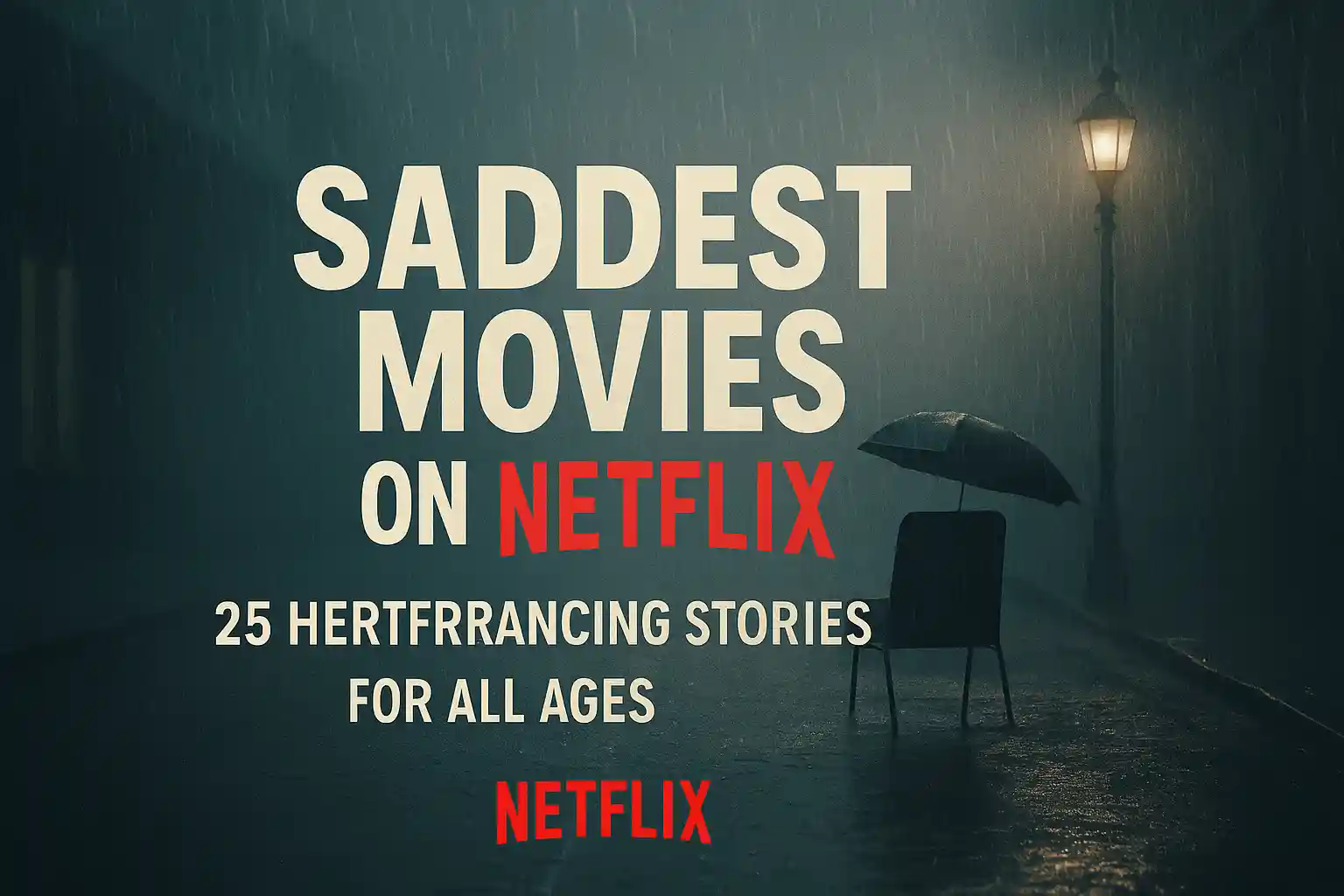
7. Bridge to Terabithia (2007)
- Runtime: 96 min
- Starring: Josh Hutcherson, AnnaSophia Robb
- Director: Gábor Csupó
- Genre: Family/Drama
- IMDb Rating: 7.1
Imagination makes a kingdom and then grief knocks on the gate. Jess and Leslie build Terabithia from rope, creek, and courage, a place where misfits are monarchs. The film respects childhood by taking wonder seriously. Which is why the twist lands like a fallen tree. Adults scramble for platitudes while a boy learns permanence. Hutcherson’s stunned stillness is truer than any scream. The film offers art as bridge when the rope snaps. By the end, Terabithia isn’t escape but inheritance. That’s how friendship wins after it loses.
6. Eternal Sunshine of the Spotless Mind (2004)
- Runtime: 108 min
- Starring: Jim Carrey, Kate Winslet
- Director: Michel Gondry
- Genre: Romance/Drama/Sci-Fi
- IMDb Rating: 8.3
Memory erasure sounds like mercy until love starts disappearing and you realize what else goes with it. Carrey’s Joel flees pain, then races backward through his mind to rescue the very moments that hurt. Winslet’s Clementine is chaos and color, the bruise and the bloom. Gondry stages the mind as a collapsing set, doors to nowhere and beaches in snow. The screenplay argues that our flaws are the fingerprints on our joy. “Meet me in Montauk” becomes a thesis on second chances without amnesia. The ending is brave enough to be honest: we will probably hurt each other again. And we’ll choose each other anyway. That’s what makes it sad. That’s what makes it beautiful.
5. Room (2015)
- Runtime: 118 min
- Starring: Brie Larson, Jacob Tremblay
- Director: Lenny Abrahamson
- Genre: Drama/Thriller
- IMDb Rating: 8.1
“Room” is both prison and planet for a child who’s never seen sky. Brie Larson’s Joy molds captivity into curriculum, threading protection through terror. Jacob Tremblay’s Jack narrates with wonder that breaks your heart by being accurate. The escape sequence is a symphony of breath and hope, but freedom is not finale. The second half tracks reentry as trauma redistributes itself across a family. News vans leer; relatives fumble; closets feel suddenly too big. The film honors survival as ongoing work, not a single headline. Small victories—scissors, a haircut, a goodbye to a shed—register like fireworks. Love here is logistics, patience, and starting over. It glows.
4. Manchester by the Sea (2016)
- Runtime: 137 min
- Starring: Casey Affleck, Michelle Williams
- Director: Kenneth Lonergan
- Genre: Drama
- IMDb Rating: 7.8
Lee Chandler is grief walking, functional enough to fix other people’s leaks but not his own. Affleck plays him like a man allergic to joy, reactions delayed, jokes half-mouthed. The film reveals the cause in a flashback so cruel you almost look away. Michelle Williams arrives for a few minutes and detonates empathy. New England’s winter landscapes make sorrow feel meteorological. A teenager’s needs force logistics into a place where feelings won’t go. Lonergan keeps the humor dry and the sentiment salted. The ending refuses redemption arc shorthand, choosing something humbler: capacity. Sometimes surviving means finding a bigger apartment for pain. It’s honest. It ruins you gently.
3. The Notebook (2004)
- Runtime: 123 min
- Starring: Ryan Gosling, Rachel McAdams
- Director: Nick Cassavetes
- Genre: Romance/Drama
- IMDb Rating: 7.8
Young love blazes; old love endures; memory betrays them both. Gosling and McAdams ignite the screen with summer-soaked chemistry that feels reckless and right. Class divides, parental meddling, and time do their worst. In the nursing home, Noah reads their story back to Allie, hoping words might be a key. Sometimes they are; sometimes the lock has changed. The film has been parodied because it is earnest; it endures because it is. Rain kisses and front-porch futures give way to hospital monitors and resolve. The ending chooses togetherness over terror, and yes, it manipulates—like a great symphony manipulates air. Bring tissues. Bring more tissues.
2. Marley & Me (2008)
- Runtime: 115 min
- Starring: Owen Wilson, Jennifer Aniston
- Director: David Frankel
- Genre: Family/Drama
- IMDb Rating: 7.1
Marley is chaos incarnate and unconditional love on four legs. The film charts a marriage through chewed drywall, newborn nights, and career pivots, with a dog as metronome. Owen Wilson and Jennifer Aniston play partnership as a practice, not a montage. The comedy is generous, which makes the third act feel like weather turning. Vet visits multiply; walks shorten; goodbyes crowd the edges of frames. Anyone who’s loved a pet knows the precise ache this film targets. It honors animals as family, grief for them as real grief. When the final car ride comes, the movie gives you time to sit with it. And then it gives you time to cry.
1. Titanic (1997)
- Runtime: 195 min
- Starring: Leonardo DiCaprio, Kate Winslet
- Director: James Cameron
- Genre: Romance/Drama
- IMDb Rating: 7.9
Jack and Rose fall in love aboard an engineering miracle destined for a footnote made of ice. Cameron’s epic marries swooning romance to procedural disaster with impossible control. The class satire is sharp; the production design is lunatic in its detail. But it’s the human scale—hands, breath, a floating door—that lingers. DiCaprio’s grin and Winslet’s ferocity make myth feel intimate. Celine Dion does weaponized sentiment and wins. The sinking unfolds with balletic terror, violins sawing against cold. In the end, survival is lonely and memory is a harbor. “I’ll never let go” became a joke because it first became a vow. The film still earns your tears the hard way.
Conclusion: Why Saddest Movies on Netflix Matter
The saddest movies on Netflix endure because they tell the truth about what we cannot fix and what we can carry. They teach that love is not insurance against loss but a reason to face it. Some of these films end in devastation; others end in the quieter courage of going on. All of them convert pain into story, and story into something we can hold together. When a courtroom becomes a confessional, a boxing gym becomes a chapel, or a lifeboat becomes a love letter, cinema is doing sacred work. We weep because we recognize ourselves—our stubborn hope, our worst mistakes, our small mercies. If you want thoughtful criticism that expands these themes, explore the coverage in The New York Times Movies and essays from The Washington Post Movies, two long-standing US outlets that treat film as culture, not content. Their perspectives deepen the afterglow, offering new angles on stories you thought you’d finished. And that’s the final lesson these films leave: grief bends us, art steadies us, and empathy lets us share the weight. You will leave emptied and, somehow, more complete.





